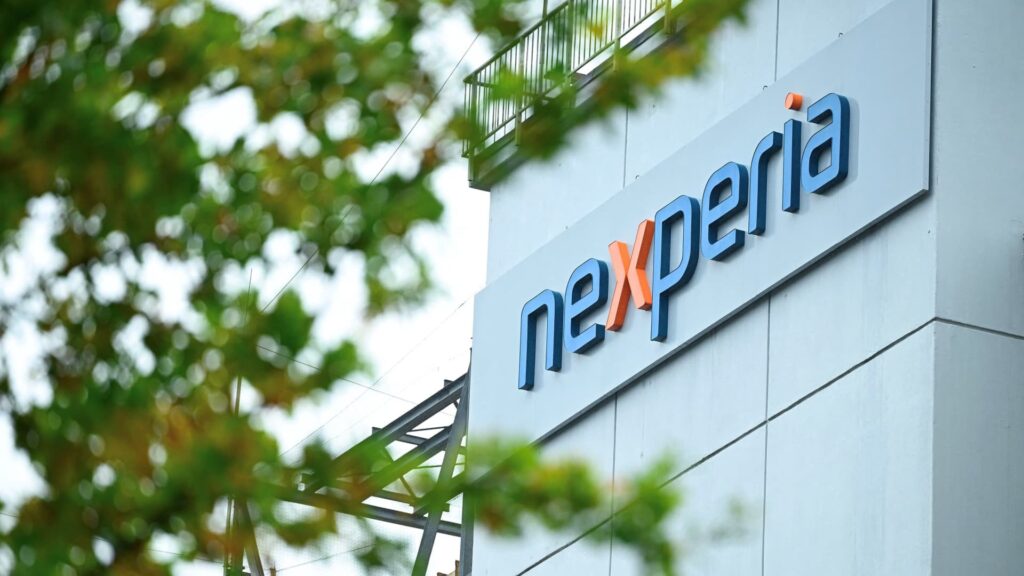The ongoing dispute involving Nexperia, a Netherlands-based semiconductor company owned by China’s Wingtech, has escalated into a significant concern for global automakers. Following the Dutch government’s seizure of Nexperia due to national security worries, Beijing responded by blocking the export of Nexperia’s products. The situation has generated concern among automakers who rely on these critical automotive chips, prompting urgent discussions among European officials and a reevaluation of U.S.-China technology relations.
| Article Subheadings |
|---|
| 1) Understanding the Importance of Nexperia Chips |
| 2) The Circumstances Leading to the Standoff |
| 3) Current Status of the Dispute |
| 4) Reaction from the Automotive Industry |
| 5) Future Implications and considerations |
Understanding the Importance of Nexperia Chips
Nexperia plays a crucial role in the global semiconductor market, manufacturing billions of foundational chips—such as transistors, diodes, and power management components. These chips are produced primarily in Europe but are assembled and tested in China before being re-exported globally, with about 70% of the chips made in the Netherlands ending up in China for completion. Their functionalities are indispensable in many electronic devices, especially in vehicles. Nexperia’s chips connect batteries to motors and power critical systems, including lighting, braking, airbags, and infotainment systems.
In 2023, Nexperia reported sales reaching $2 billion, emphasizing its impact on the automotive and broader technology sectors. Major automakers like Volkswagen, Nissan Motor, and Mercedes-Benz have raised alarms regarding the potential disruption of these chips, indicating that continued limitations could lead to significant production disruptions.
The Circumstances Leading to the Standoff
The tensions escalated dramatically in September 2025 when the Dutch government invoked a Cold War-era investment law to seize control over Nexperia. This action arose due to concerns that Wingtech, Nexperia’s parent company, might transfer sensitive intellectual property to another entity, heightening fears over national security. Consequently, a Dutch court suspended Nexperia’s CEO, Zhang Xuezhen, for alleged mismanagement, further complicating the company’s operational landscape.
In retaliation, Beijing imposed export restrictions on specific Nexperia products manufactured in China, marking a significant escalation in the standoff and triggering fears of a broader supply chain shock. The company subsequently informed its automotive clients that it could no longer guarantee reliable supplies of chips essential for production.
Current Status of the Dispute
As discussions continue, recent reports suggest that a potential resolution may be on the horizon. Meetings held in Europe have indicated that U.S. authorities are considering permitting Nexperia to resume its chip shipments as part of a framework agreement that could have been negotiated during talks between U.S. and Chinese leaders. Moreover, China has indicated it might exempt some Nexperia chips from export controls, although details regarding the specific exemptions remain undisclosed.
“We will comprehensively consider the actual situation of the enterprise and exempt eligible exports,” stated the Chinese Commerce Ministry.
Should these exemptions be finalized, automakers would experience immediate relief; however, the overarching issues of ownership disputes and technology control continue to loom large.
Reaction from the Automotive Industry
The automotive industry is on high alert due to the cascading effects of the Nexperia standoff. Major manufacturers have expressed growing concerns about the potential for production halts should the export of Nexperia’s chips remain curtailed for an extended period. Although companies usually maintain stockpiles and have secondary suppliers, switching supply sources is not straightforward and cannot happen overnight, incrementing the urgency of the situation.
Automakers are gearing up for contingency plans in the event that supply chains are further disrupted. Conversations are taking place across various sectors as companies vie for alternative solutions to ensure the continuity of their production lines, underpinning the necessity of collaboration and adaptability within the industry.
Future Implications and Considerations
This dispute has broader implications beyond just Nexperia and the automotive industry. The situation underscores the intersection of technology and geopolitical tensions, with the potential for longstanding effects on international trade and semiconductor supply chains. As governments worldwide scrutinize technology transfers to and from China, similar cases may arise in the future, raising questions about security regulations for foreign firms operating in sensitive industries.
Moreover, this scenario serves as a cautionary tale about reliance on specific manufacturers in critical supply chains. With the global chip shortage still fresh in memory, the automotive industry and policymakers alike may need to rethink their approaches to sourcing and supply chain management, particularly in light of escalating geopolitical tensions.
| No. | Key Points |
|---|---|
| 1 | Nexperia’s chips are essential for numerous electronic systems in vehicles. |
| 2 | The Dutch government seized control of Nexperia to address national security concerns. |
| 3 | Beijing retaliated against the Netherlands by blocking exports of Nexperia’s products. |
| 4 | Current discussions may lead to a resumption of exports, pending exemptions from export controls. |
| 5 | The dispute highlights the complexities of global supply chains amid geopolitical tensions. |
Summary
The unfolding situation surrounding Nexperia encapsulates the intricate relationships between technology, national security, and international trade. As the semiconductor sector faces mounting scrutiny amid geopolitical tensions, the implications of this standoff extend well beyond Nexperia and the automotive industry. It serves as a vital reminder of the challenges unique to modern supply chains and the importance of resilience in the face of disruption.
Frequently Asked Questions
Question: What role does Nexperia play in the semiconductor industry?
Nexperia manufactures foundational semiconductor components needed in a wide array of electronic devices, most notably in the automotive sector, where they are used in essential systems for vehicle operation.
Question: Why did the Dutch government seize control of Nexperia?
The Dutch government seized control due to national security concerns over potential knowledge transfers to other entities owned by Nexperia’s parent company, Wingtech.
Question: How have automakers reacted to the ongoing dispute?
Automakers have expressed significant concern over potential production halts linked to the export of Nexperia’s chips, prompting them to consider alternative supply strategies to mitigate risks.
